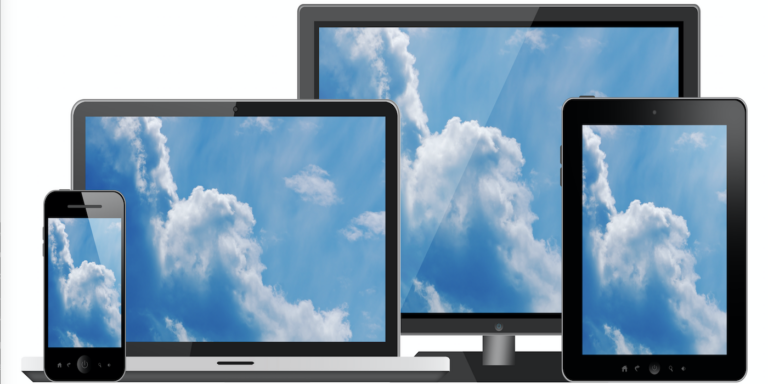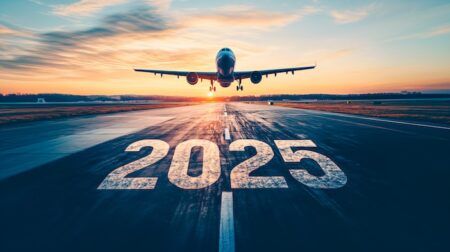There are so many different types of IFE solutions available today that it’s difficult for an airline to know which would be the most beneficial. You might be thinking, ‘mobile or wireless IFE – or both?’, ‘is the seatback solution still necessary?’, or simply ‘help!’ So which type of solution is best for you, based upon your current marketing objectives?
If your marketing objective is to reduce the cost of distribution of IFE content:
Both mobile and wireless IFE solutions will help you to cut distribution costs significantly (although mobile has a slight edge because it doesn’t require the installation of a portable box, further reducing the cost of installation and minimizing onboard weight).
If your marketing objective is to boost brand loyalty:
Seatback, wireless and mobile IFE solutions can all help an airline to boost brand loyalty because they will help improve the passengers’ inflight experience; however, only mobile IFE offers passengers the ability to access to the IFE content throughout the entire travel day – from pre-boarding, during the flight and after landing – making the whole travel experience even more enjoyable. Finally, when used in combination, they are even more powerful, as they offer the greatest range of entertainment to suit every passenger’s needs.
If your marketing objective is to improve visibility of promotional content and airline news (including partnerships, new routes, etc):
All three IFE solutions are useful for fulfilling this marketing objective, but with varying degrees of success. Like with the development of brand loyalty, mobile IFE has a small edge for two reasons: first, because it enables you to collect the most data from passengers (which can be used for more effective targeting) and, secondly, mobile gives you the ability to advertise to passengers during the entire day of travel (at the gate, in-flight and even once they’ve arrived in their destination).
If your marketing objective is to improve the passengers’ overall flight experience, from the departure airport through to the hotel in the destination:
Only seatback and wireless IFE solutions enable passengers to access content without downloading an app, which can be an advantage for passengers who prefer not to use a cell phone or other devices; however, both do limit the access when passengers have access the content, making the content availability once the airplane is in flight. On the other hand, mobile IFE gives an airline the ability to provide IFE content throughout the entire passenger journey, as it can be integrated with the airline’s booking app and available whenever the passenger is connected to wi-fi, even as passengers are waiting at the gate or when they arrive in their destination.
If your marketing objective is to reward top-tier passengers and loyalty program members:
Seatback IFE is still a must-have for long-haul routes and, as a value-add for premium passengers, no matter the duration of the route; as such, seatback solutions are likely to continue holding value in the future.
So which is it?
In truth, all three types of IFE solutions are beneficial to be offered as rewards for high-value and loyal passengers, with different offerings. In recent years, mobile has become a compelling complement to seatback or wireless solutions, as it offers access to more passenger data, enabling the airline to offer customized rewards to different passenger segments.
In short, I would recommend either a seatback combined with a mobile IFE approach or a wireless combined with a mobile approach, as together, they will provide the best reward options for both premium passengers and loyalty program members.
Generating and collecting passenger data
Both mobile and wireless IFE solutions offer the ability to collect passenger data, which is useful in offering more personalized services/offerings; however, mobile IFE offers the greatest breadth of passenger data, as it collects data prior to boarding, during the flight and even upon arrival at the passenger’s hotel in the destination city. If the mobile IFE solution is integrated into the airline’s booking app, it even further increases the amount of passenger data collected.
Improve the pickup rate of your mobile booking app to maximize benefits from digitized workflows/processes during booking and pre-boarding
Mobile IFE solutions are ideal for fulfilling this marketing objective. By integrating the IFE content into the booking app, the pickup rate and retention of the app will increase dramatically, as it provides added functionality throughout the traveler’s trip (not just when booking).
Increasing ancillary revenue streams
As we’ve discussed in the prior scenarios, all three types of solutions can generate ancillary revenues for the airline. Before making your choice, consider these additional questions, as answering them will make it clearer as to which solution (or combination) will work best for you:
- What is my secondary marketing objective?
- Who is my demographic and how comfortable would they be with new technologies?
- Which types of ancillary revenues would be most appealing to them?
- Examine your routes and whether your aircraft are leased or purchased.
And, that’s it! I hope that this list gives you a clearer picture about which IFE solution will best support your airline’s marketing objectives. If your current marketing objectives weren’t included in this list, feel free to email me at david.fairand@adaptive-channel.com; I’d be happy to provide a personalized recommendation on the best IFE solution for you.
About Adaptive
Adaptive provides global airlines with a sophisticated mobile inflight entertainment (IFE) solution called ACES, which delivers curated content in multiple languages, encompassing diverse, globally-relevant media, along the entire customer journey – before, during and after the flight. Current airline clients include Singapore Airlines, SAS, TAP Portugal, among others. More information can be found at adaptive-channel.com or by email at contact@adaptive-channel.com





